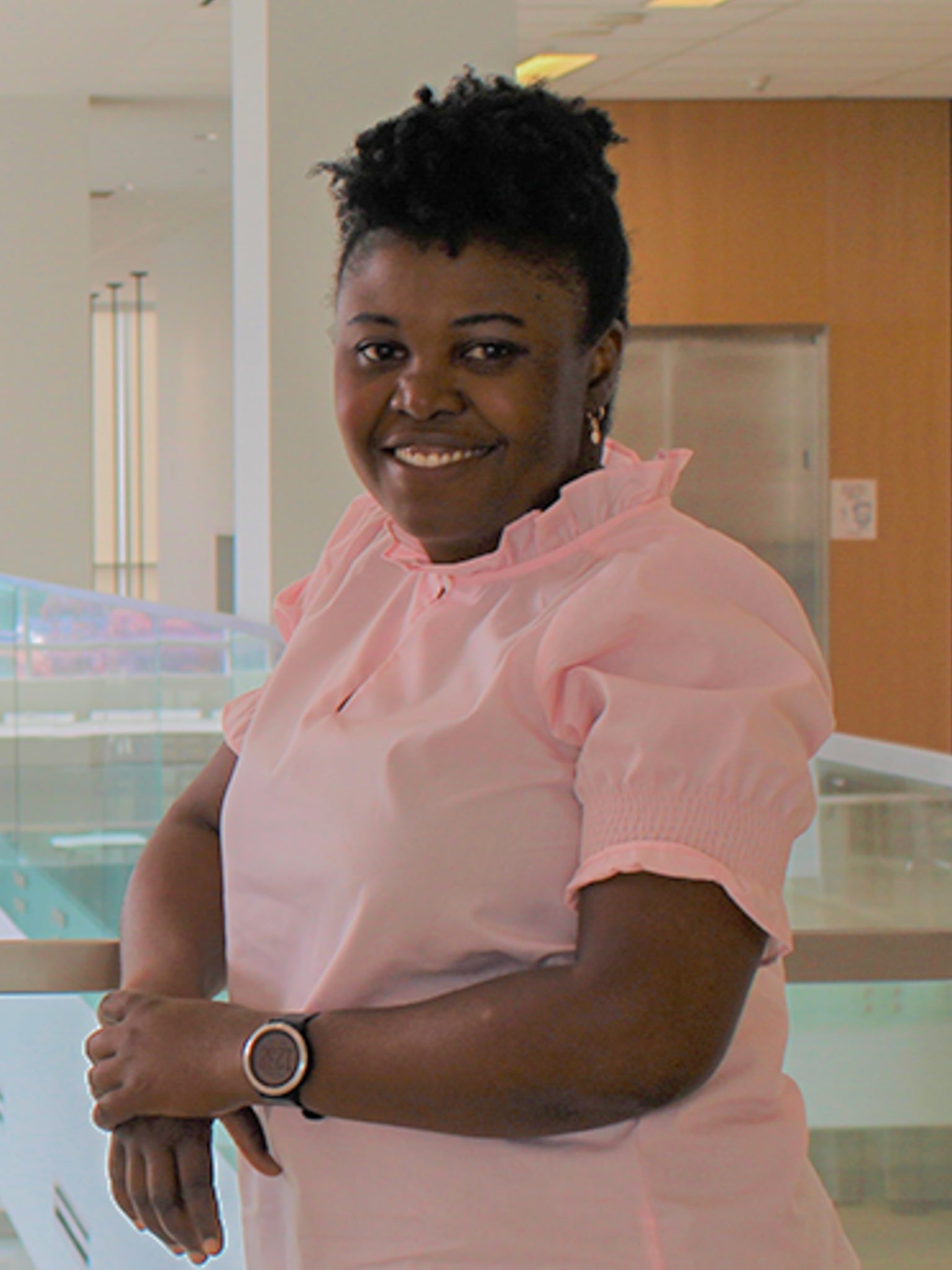Every year, around 10 million people contract tuberculosis (TB) - a treatable disease where bacteria attack a patient's lungs. Globally, only about half of those who contract TB yearly are diagnosed. Many other people with TB are undiagnosed and untreated, partly due to a lack of access to quality health-care systems, particularly in resource-limited settings and among marginalized groups.
Charity Oga-Omenka, a professor in the School of Public Health Sciences at the University of Waterloo, shares how her research examines health-care seeking journeys for individuals with TB across Nigeria, India and Indonesia, and the access to quality TB care among the private sector health-care providers in these settings.
 "If a patient were to go, for instance, to a community pharmacy to complain about their cough, the pharmacy would likely not do a test and would just recommend cough medicine or even dispense antibiotics without a prescription. Whereas a patient who goes to a public clinic with TB services would likely get tested and diagnosed by the clinician," Oga-Omenka explains.
"If a patient were to go, for instance, to a community pharmacy to complain about their cough, the pharmacy would likely not do a test and would just recommend cough medicine or even dispense antibiotics without a prescription. Whereas a patient who goes to a public clinic with TB services would likely get tested and diagnosed by the clinician," Oga-Omenka explains.
"My research focuses on the main reasons why some people are able to come to the clinic at the time they should and others are not. Or if they do get to a clinic, what are the main reasons why the health-care system is not diagnosing them?"
Oga-Omenka was not only born and raised in Nigeria, but also spent 10 years working to support the public health sector within the region. She worked with a large non-governmental organization in Nigeria, funded by the U.S. President's Emergency Plan for AIDS Relief (PEPFAR) and the Global Fund for AIDS, TB and Malaria.
This work sparked her passion to continue working to support the public sectors in low and middle-income settings, as she witnessed first-hand how these programs were critical in the testing, treatment and support of people living with HIV/AIDS, malaria and TB in Nigeria.
"That was very powerful to me to see that I can contribute to a program that provides interventions, such as testing, counselling and medication for critically ill patients, and see them bounce back to life," Oga-Omenka says, explaining how her love for public health comes from being able to make a difference in someone's life.
"When you work at the public health-care level, you can see the large-scale impact these programs have from the number of patients you're working with that progress from being very ill to having their lives back again."
Having received funding from the Graham Seed Fund, which provides resources for health-care providers and clinicians, Oga-Omenka plans to expand her research on TB health-care delivery in Nigeria, and other high-burden TB countries with prominent private health-care sectors. Oga-Omenka and her team are currently interviewing people in the field to see how technology can intervene, or the challenges with existing technologies, in targeting the issues that are preventing people from getting diagnosed in a timely fashion.
Oga-Omenka is expecting to collaborate with the faculties of Engineering and Mathematics to develop web-based technologies as resources to support TB testing for patients and their health-care providers and managers. Oga-Omenka hopes that her team's ongoing research on existing health-care infrastructure, resources and technology will improve access to services for people seeking TB treatment and care.
The Waterloo researcher envisions a future where similar technology for COVID-19 prevention can be leveraged for other health issues. If there is an app that people can download onto their phones to access a self-assessment tool and view a list of readily available health-care providers and facilities nearby - it would be the ideal technological solution for the future of health care.
"In an ideal world, technology can help people, irrespective of where they live to optimize their health. Imagine a world where people everywhere have at their fingertips tools and resources that they can use to make informed decisions about their health; and their health-care providers are able to find them," Oga-Omenka says.
"I think there's an opportunity for Waterloo, being at the forefront of cutting-edge technology and innovation, to help build technologies that can help people in different settings improve their access to health care."






